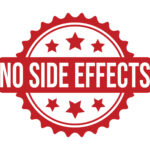According to a report by the Chicago Defender, over-the-counter pain relievers may pose risks to blood pressure levels. The article highlights a study published in the Journal of Hypertension. It found that nonsteroidal anti-inflammatory drugs (NSAIDs) such as ibuprofen and naproxen can increase blood pressure in some individuals. The study suggests that prolonged use of these medications can lead to hypertension.
The study analyzed data from over 400,000 participants. The researchers found that NSAID use was associated with a 38% increased risk of hypertension. The risk was higher in individuals with pre-existing high blood pressure or cardiovascular disease. The researchers recommend caution when using these medications, especially for individuals with hypertension or at risk of developing it.
It is important to note that not all pain relievers have the same effect. Acetaminophen, for example, does not appear to have the same impact. However, you should always consult with your healthcare provider before taking any medication. Especially if you have high blood pressure or other cardiovascular conditions.
“It’s paramount that people who have high blood pressure, or are at risk for it, understand the effects associated with some over-the-counter pain relievers,” said Dr. Mitchell S. V. Elkind, M.D, Chief Clinical Science Officer of the American Heart Association.
Key Figures on OTC pain relievers and blood pressure in the USA
- A significant portion of U.S. adults, almost half, have hypertension. Yet only 29% know that over-the-counter (OTC) pain relievers might elevate blood pressure.
- Surprisingly, only about 30% of U.S. adults have spoken with their healthcare professional about the adverse effects some OTC pain relievers can have on blood pressure.
- Nearly 50% of surveyed U.S. adults take medication for pain once a week or more. Adults aged 45-54 are the most frequent users.
- Among U.S. adults with high blood pressure, 39% report that acetaminophen is the OTC medication they most often use for pain. It is generally considered safer for people with high blood pressure.






